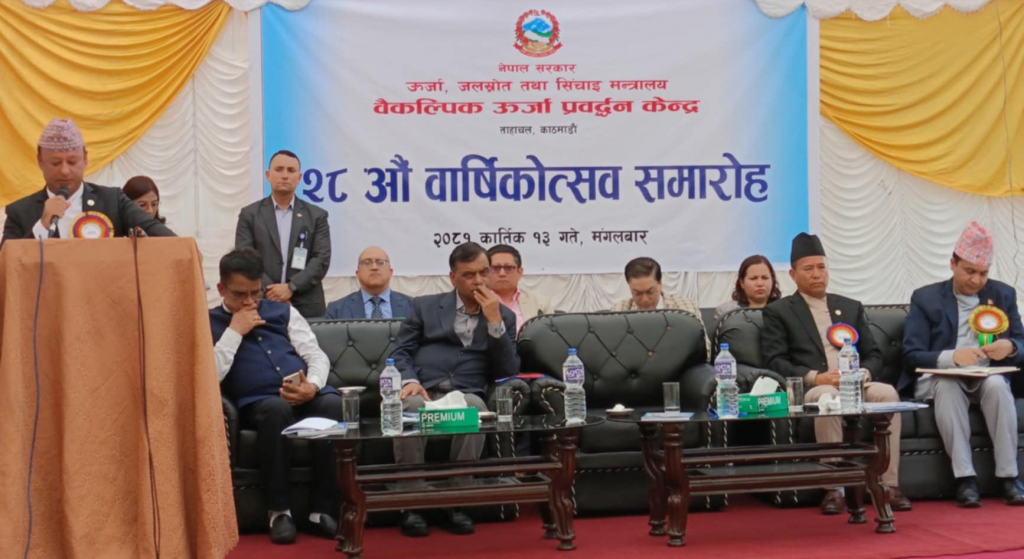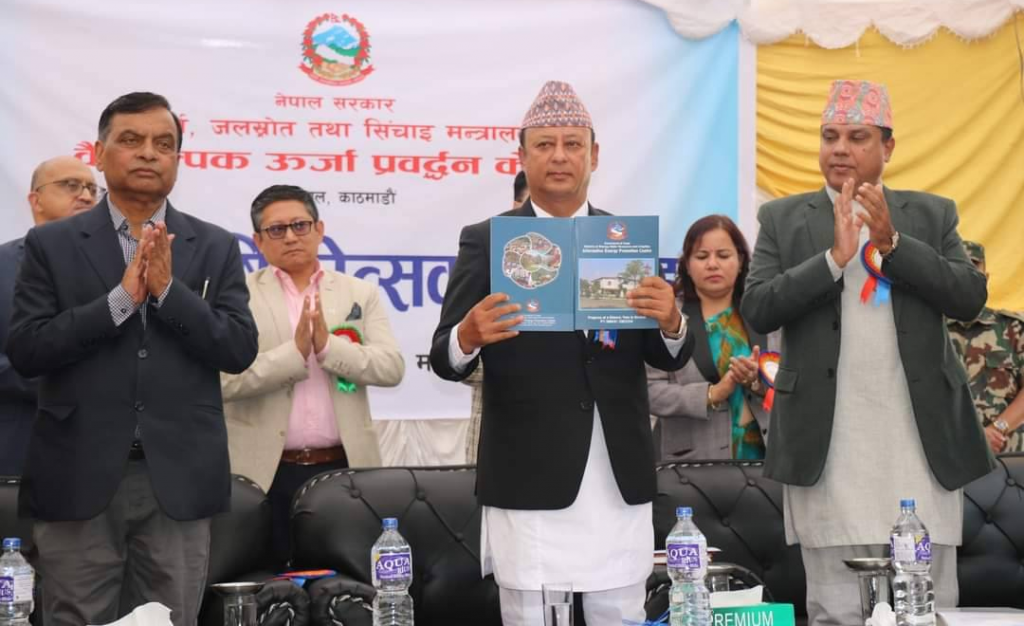 The Nepal Weekly
The Nepal Weekly  October 29, 2024
October 29, 2024
Minister for Energy, Water Resources and Irrigation Deepak Khadka has said that the government has set a target to generate 28,500 MW of hydro-electricity by 2035 and Nepal considers that export of electricity can be a major source of its foreign currency earning. He was addressing the 28th anniversary function of Alternative Energy Promotion Centre (AEPC) in Kathmandu.
“We have already reached an agreement to sell 10,000 MW of electricity to India and also recently inked an agreement with Bangladesh to export 40 MW of electricity”, pointed out minister Khadka. “Our domestic consumption is also increasing and within a decade our domestic demand for power will reach more than 13,000 MW.” Though we have just signed an agreement to sell 40 MW of electricity to Bangladesh, we are moving towards signing an agreement to export 6,000 – 7,000 MW power to Bangladesh in the near future, he added.
“We are aiming to export power to all our neighbouring counties through proper utilization of our abundant water resources so that the country could attain economic prosperity,” Minister Khadka said. “The efforts made by AEPC have been instrumental in enhancing clean energy access, especially in remote areas of the country, which are not connected to the national power grid.” He assured full support from the government for the promotion of renewable energy in the country as it can help attain cent percent electrification goal set by the government.
“The government is working towards introducing Renewable Energy and Energy Efficiency Act soon to address the problems facing the alternative energy sector,” remarked Minister Khadka. In its nearly three decades long history the AEPC has helped generate more than 40,000 KW of electricity through the development of micro and small hydro power projects and provided clean and renewable energy services to 3.65 million households throughout the country, remarked Nawa Raj Dhakal, executive director of AEPC. Lack of adequate financial resources and lack of timely reconstruction of the renewable energy projects damaged by the natural disasters are the major obstacles towards the development of alternative energy, he pointed out.

At present there are more than 500 private companies working in the field of renewable energy generating employment opportunity to more than 50,000 people, according to the centre. On the occasion Minister Khadka honoured various individuals and institutions making outstanding contributions in the promotion and development of renewable energy sector.
AEPC is an independently functioning government institution established by the Government of Nepal with the objectives to popularize and promote the use of renewable energy technologies, raise the living standards of the rural people, protect the environment, and develop commercially viable renewable energy industries in the country.
AEPC was established on November 3, 1996 (Kartik 18, 2053 B.S.) under then Ministry of Science and Technology of the Government of Nepal. Currently, it is under the Ministry of Energy Water Resources and Irrigation.






